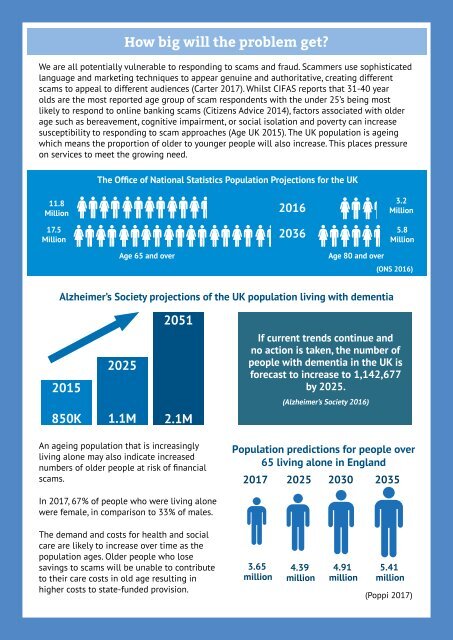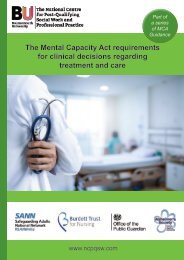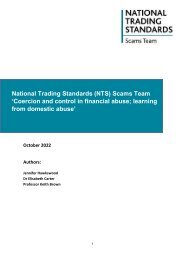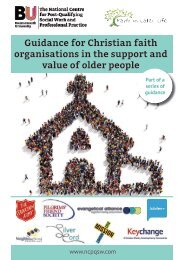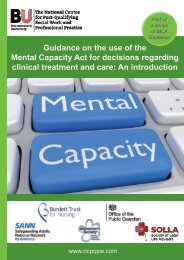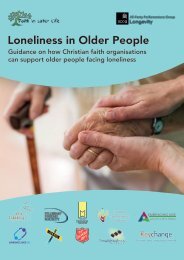Financial Scamming and Fraud
Financial scamming and its impact have been receiving a higher public profile in recent months, yet though it is recognised as a growing problem, there is a lack of clear research and evidence into the scale of the problem, its causes and the impact on the public.
Financial scamming and its impact have been receiving a higher
public profile in recent months, yet though it is recognised as a
growing problem, there is a lack of clear research and evidence
into the scale of the problem, its causes and the impact on the
public.
You also want an ePaper? Increase the reach of your titles
YUMPU automatically turns print PDFs into web optimized ePapers that Google loves.
How big will the problem get?<br />
We are all potentially vulnerable to responding to scams <strong>and</strong> fraud. Scammers use sophisticated<br />
language <strong>and</strong> marketing techniques to appear genuine <strong>and</strong> authoritative, creating different<br />
scams to appeal to different audiences (Carter 2017). Whilst CIFAS reports that 31-40 year<br />
olds are the most reported age group of scam respondents with the under 25’s being most<br />
likely to respond to online banking scams (Citizens Advice 2014), factors associated with older<br />
age such as bereavement, cognitive impairment, or social isolation <strong>and</strong> poverty can increase<br />
susceptibility to responding to scam approaches (Age UK 2015). The UK population is ageing<br />
which means the proportion of older to younger people will also increase. This places pressure<br />
on services to meet the growing need.<br />
The Office of National Statistics Population Projections for the UK<br />
11.8<br />
Million<br />
17.5<br />
Million<br />
2016<br />
2036<br />
3.2<br />
Million<br />
5.8<br />
Million<br />
Age 65 <strong>and</strong> over<br />
Age 80 <strong>and</strong> over<br />
(ONS 2016)<br />
Alzheimer’s Society projections of the UK population living with dementia<br />
2051<br />
2015<br />
850K<br />
2025<br />
1.1M<br />
2.1M<br />
If current trends continue <strong>and</strong><br />
no action is taken, the number of<br />
people with dementia in the UK is<br />
forecast to increase to 1,142,677<br />
by 2025.<br />
(Alzheimer’s Society 2016)<br />
An ageing population that is increasingly<br />
living alone may also indicate increased<br />
numbers of older people at risk of financial<br />
scams.<br />
Population predictions for people over<br />
65 living alone in Engl<strong>and</strong><br />
2017 2025 2030 2035<br />
In 2017, 67% of people who were living alone<br />
were female, in comparison to 33% of males.<br />
The dem<strong>and</strong> <strong>and</strong> costs for health <strong>and</strong> social<br />
care are likely to increase over time as the<br />
population ages. Older people who lose<br />
savings to scams will be unable to contribute<br />
to their care costs in old age resulting in<br />
higher costs to state-funded provision.<br />
3.65<br />
million<br />
4.39<br />
million<br />
4.91<br />
million<br />
5.41<br />
million<br />
(Poppi 2017)


